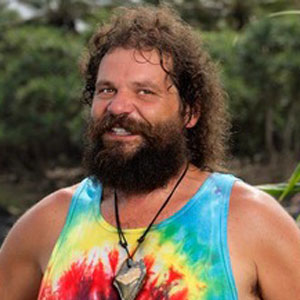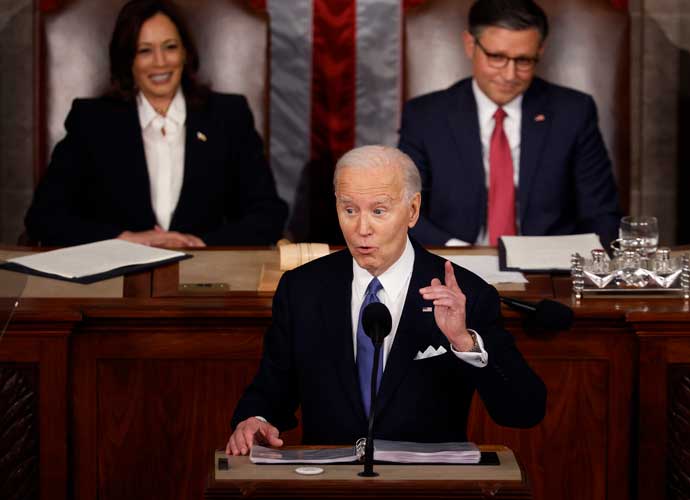Rupert Boneham On 'Survivor: Redemption Island,' Saving His Wife, Running For Governor
Rupert Boneham, the four-time Survivor contestant and Survivors: All-Stars Fan Favorite winner, shocked viewers when he traded places with his wife and was the first person eliminated from Survivor: Redemption Island. Boneham switched places with Laura and put himself on the island, a chivalrous move that led to his departure and will be remembered in Survivor history. "I'm sitting, waiting to see who's coming out next and I'm only hoping it's not Laura," Boneham told Uinterview exclusively. "I never really thought about having people coming at me or try and get me through Laura."
Boneham has no regrets about his decision and believes it was the best move for the game that matters even more than Survivor. "In the game of life, that was great strategy," said Boneham. "Of course, any time that I can take care of my wife and help her out of with trouble, help her into a place with a little more safety and security — I hope I'm able to do that."
Boneham's charity, Rupert's Kids, works with youths that have aged out of youth social service programs but are too young for adult programs. These adolescents are taught valuable skills and trades while empowering and helping them to explore interests and passions. "We show my kids in my mentoring program that you can change your world, you do deserve second chances, that it is okay to be yourself," says Boneham. "Those were some great lessons that I've learned myself."
Almost every time that I've ever left Survivor, I've said, 'That was the hardest trip I've ever had in my life, I'm never playing that game again!' And then as days go by, 'Well, I could do it.' And then I start hoping that they call and ask me to play the game again. When they called and asked, 'Do you want to play the game?' I was thrilled. But then they said they wanted me to play with a loved one. Right off the bat, I suggested going with my wife, not playing with my brother, or my cousin.
I never really thought about having people coming at me or try and get me through Laura. Each time I've been out on Survivor, except the very first time, just when you get out there, I just get in, putting in all the work. I'll do the food, I'll clean the food. I never really thought about that. I should have. Plus, not being on the same tribe and them being able to get at me through Laura. But we came together and I had to protect her.
As we're out playing the game, I'm sitting, waiting to see who's coming out next and I'm only hoping it's not Laura.
[Laughs] Well, one of my buddies who's not married was giving me a hard time, saying, 'That was pretty pitiful strategy.' And I told him, 'Depends what you're looking at — what the game is.' In the game of life, that was great strategy. Of course, any time that I can take care of my wife and help her out of with trouble, help her into a place with a little more safety and security — I hope I'm able to do that. I knew that would mean my safety was more in trouble, but I would make the same decision every time. Since my wife has gotten back from playing the game, I asked if she would enter the game again. I heard her say, 'Yes,' she would enter the game again. 'We would both enter the game again. But don't expect me to give up my game for you.'
One of the ways that I was able to be a winner was that I was the winner of a giant fan vote. I never really won the game, I came close every time, except for this one, to getting to the end of the game. I'm the only guy out there who spent 100 days in three games. There are two females that got 100 days but being able to go out there and make the decision to give up the game for my wife, to see how tough she is and how good she is doing, oh my gosh, I love seeing that but it was tough.
I always had a lot of tie-dye. When my wife and I were newlywed, she got a whole ball of my white shirts — my white tank tops that I used to wear during work. I had a lot of white tank tops. She went and tie-dyed all of them to eliminate the stains. So I went from wearing a few tie-dyes to wearing a lot of tie-dye.
I never really thought of myself of having strong political views. In a few years when I run for Governor, I've just been fed up with some of the decisions made by legislation that isn't proven to be working. With Survivor, that helped get my political voice, working with my mentoring program to help change my little community here in Indianapolis. Being able to run for Governor, show my kids in my mentoring program that you can change your world, you do deserve second chances, that it is okay to be yourself. Those were some great lessons that I've learned myself and a few others.
It'll be a few years before I ever run for any other office. I'm sure I will again. But that's one heck of an undertaking. I'd need to recoup and regather. My mentoring program is opening another offshoot in another community about ten miles outside of Indianapolis. We'll bring the vocational training back to high schools, help bring productive re-entry programs with actual work into the detention centers, we lessen the recidivism rate, raise the success rates of high school graduate and through that, limit spending, show how we can do that with resources that we have in the community if we work together. If we can do that in smaller little microcosms, like a community of 40,000 or 50,000 people, then we might spend a few million dollars a year on this system, but we're spending a few billion dollars locking people up. It's a little harder to see that saving in a smaller community, but maybe we can really start changing the numbers and showing what we're doing. We better come up with some changes in this administration soon and in how we treat this problem.
RELATED ARTICLES
Get the most-revealing celebrity conversations with the uInterview podcast!








Leave a comment